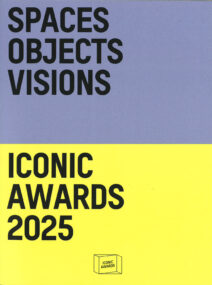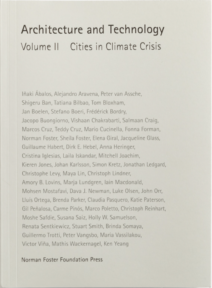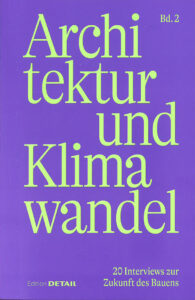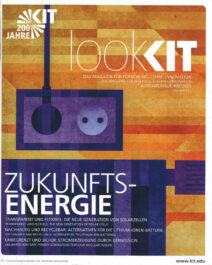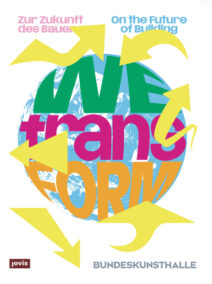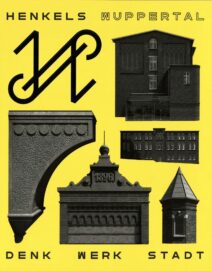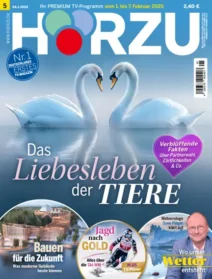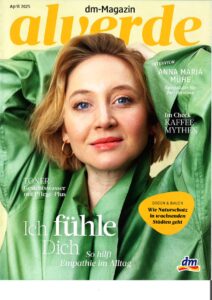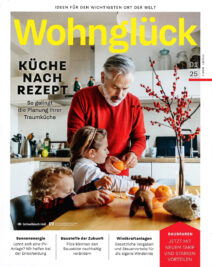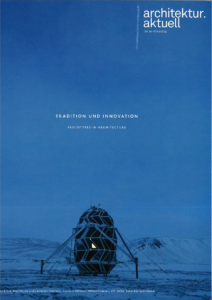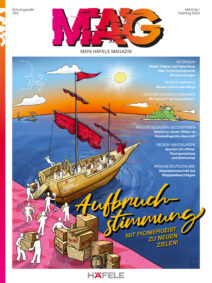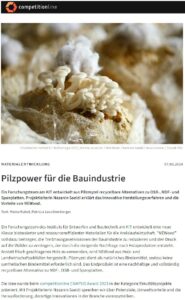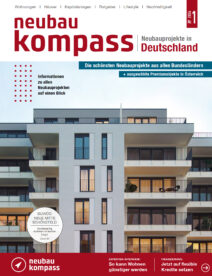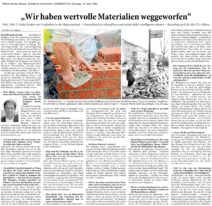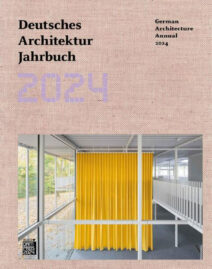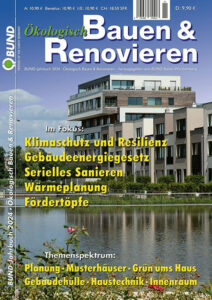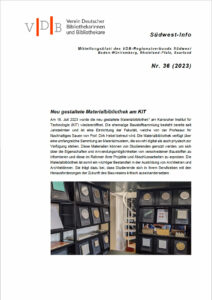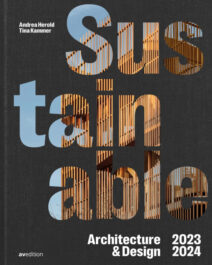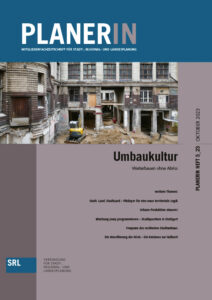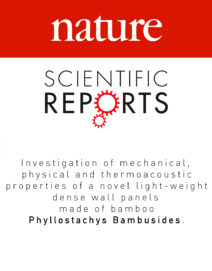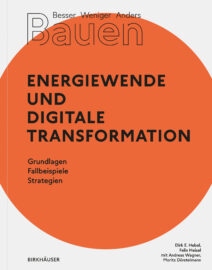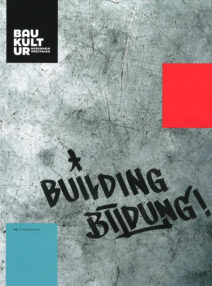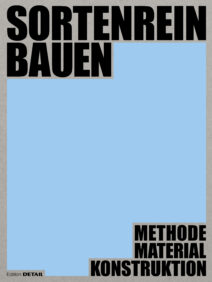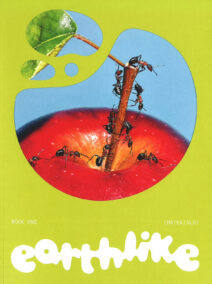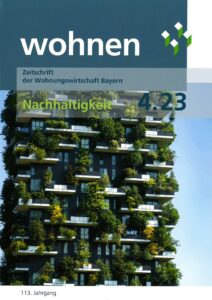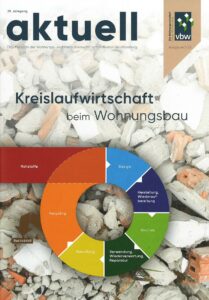Marta H. Wisniewska and Alireza Javadian at the World Sustainable Building Conference 2014
At this year’s World Sustainable Building Conference in Barcelona WSBC2014, the Chair of Architecture and Construction is presenting two papers on its recent research. Marta H. Wisniewska is speaking on “Waste – a Resource for Sustainable and Resilient future Cities” on 29th October between 3pm and 4:30pm in Session 90: “Construction systems and materials”. Alireza Javadian is presenting “Bamboo Reinforcement – A Carbon Alternative to Steel” on 29th October between 10am and 11:30am in Session 48: “Resources and Waste”. For the Conference program, please visit here.
5000 Housing Units for Addis Ababa
Design Studio with integrated discipline (Building Structure)
Architectural Design V-IX
The studio focuses on the development of different typologies for 5000 housing units in Addis Ababa. The city administration of Ethiopia’s capital commissioned the chair with this task. Already in 2015, these units for no- and low-income families, which are being displaced due to on-going redevelopment strategies, shall be constructed within the inner-city context based on the students’ design proposals. The typologies have to take the existing social and cultural conditions into consideration and, where possible, utilize local materials. Additionally, they need to remain within a given budget set by the city administration. Next to the more obvious urban questions, the studio will concentrate on locally available construction methods and materials and aims to develop architecture and construction strategies down to the scale of the detail.
The studio is taught with integrated disciplines in construction and building structures in collaboration with the Professorship Philippe Block.
In principal, the teaching language is German. Selected lectures and one consultancy group will be held in English.
The professorship also offers a seminar week trip to Addis Ababa. Enrolment is not required but highly recommended.
Asst. Prof. Dirk E. Hebel
Patrick Chladek, Felix Heisel, Hans Rufer, Gian Salis, Marta H. Wisniewska
Fall 2014 – Start: 16.09.2014, 10 am, HIQ C1
Collaborators:
Birat Kifle, Zegeye Cherenet, and Fasil Giorghis, EiABC Addis Ababa; Sascha Delz, ETHZ; Karsten Schlesier, GUTech Oman
For students: Please use the ETH Einschreibung to register and for more details.
Neue Zürcher Zeitung reports on Bamboo Composite Material research
‘Bambus statt Stahl’ (Bamboo instead of Steel) has been published in Switzerland’s leading daily newspaper ‘Neue Zürcher Zeitung’ on Sunday 27th July. The article offers an overview on the recent developments of the Assistant Professorship Dirk E. Hebel in its bamboo composite material research and led to a wide public interest in Switzerland and Europe. The full article can be accessed here.
UN Habitat – Urban Gateway on bamboo research
Very few developing countries have the resources to produce their own steel, and without this material tall buildings and urban development are all but impossible. But what if there were a local, renewable material that could be used instead of steel in reinforced-concrete buildings? And what if that substitute could be manufactured easily? These questions have motivated Dirk Hebel, an assistant professor of architecture and construction at the Future Cities Laboratory, in Singapore, to investigate a bamboo fiber composite as a possible substitute for steel reinforcement in concrete. The Future Cities Laboratory is a research arm of ETH (Eidgenössische Technische Hochschule) Zürich, in Switzerland, and is the first program under the newly formed Singapore-ETH Centre for Global Environmental Sustainability, which conducts multidisciplinary research to foster urbanization that conforms to the principles of sustainable development. If the tests on the bamboo composite are successful, developing countries will be able to manufacture and build their own urban centers without costly foreign steel imports, according to Hebel.
Read the full article here.
Bambus statt Stahl – Radio Interview on WDR5 Leonardo
On July 31st, German Radio WDR5 reported on the chair’s bamboo composite research at the Future Cities Laboratory in Singapore. Above you can listen to the short interview with Prof. Dirk E. Hebel in German.
Bamboo Reinforcement Could Help Developing Cities
Civil Engineering is the award-winning monthly magazine of the American Society of Civil Engineers. Reaching an audience of more than 140,000 civil engineers worldwide, this magazine has the largest circulation in the engineering market and provides a compelling editorial mix of engineering projects and trends, engineering science, business and professional strategies, exploration of key issues, and news. The Civil Engineering website provides weekly news and feature content that supplements the content of the monthly print and digital editions.
On July 8th, the magazine published a lengthly interview with Prof Dirk E. Hebel on his current material research at the Future Cities Laboratory in Singapore titled: Bamboo Reinforcement Could Help Developing Cities. Research on the use of a bamboo composite material in place of steel to strengthen concrete is producing positive results—and could help some developing countries urbanize.
Read the full article here.
Cities without High-Rises in FCL Magazine No. 2
The second issue of the FCL Magazine addresses the shifting character of contemporary cities, and examines what this has to say about the fortunes of future cities. Dirk E. Hebel and Felix Heisel contributed an article titled “Cities without High-Rises” in this recent publication, which can be found here.
ADDIS 2050 is a so-called ‘synergy project’ at the Future Cities Laboratory in Singapore. It combines the collective activities and collaborations within FCL and African partners over the last few years in Ethiopia, especially in its capital Addis Ababa. The title ADDIS 2050 is derived from an international conference in November 2012, where FCL, together with our partner, the Ethiopian Institute of Architecture, Building Construction and City Development EiABC, developed a vision for the city of Addis Ababa as well as the Ethiopian nation state at large. The research work conducted could be classified in three different scales applying similar tools and methodologies: UNIT, CITY and NATION. The UNIT scale deals with the question of construction materials and methods.
Ethiopia will be confronted with a population increase of 45 million people over the next 15 years, along with increased
demand for basic needs like food, water, safety, and shelter. Given this challenge, the project asks for appropriate modes of 21st century urbanisation, rather than relying on out-dated models from the developed world or following luxury trends from the Arabian peninsula. The CITY scale discusses the future development of the city of Addis Ababa. Here, questions of urban design, infrastructure, production, and invention are
on the foreground of investigation, while the NATION scale focuses mostly on future energy concepts for Ethiopia at large.
The article at hand deals with the medium scale and future development of Ethiopia’s capital. It is an attempt to show alternative possibilities towards the dominating argument for high-rise buildings in Addis Ababa.
CoReSing’s material research nominated for top five of Zumtobel Group Award
“The Zumtobel Group Award that we have curated for the past eight years is not a static object but an evolutionary process. Just as, under the influence of the respective times, the jury helped drive forward future developments through their decision, responding as they did so to social and technological demands and changes, we, as the curators have joined with the initiator of the award to take it forward by adding the “Applied Innovations” category. The large number of submissions, not least in this new category, and the intense debate within the jury only serve to underline the increasing relevance of the interplay between human beings and technology,” said Kristin Feireiss and Hans-Jürgen Commerell, Founders of Aedes Architecture Forum in Berlin (DE) and curators of the award.
The new APPLIED INNOVATIONS category, rewards innovations and technological solutions that make a trailblazing contribution to the realisation of a more sustainable built environment. The award in this category addresses technical universities, research institutions, individual engineers and firms of consulting engineers, as well as technology start-ups. Submissions could include innovations that have been proven in a prototype, a test series or an application in an actual project. From among 50 submissions in this category, the jury has nominated five offices and projects, including CoReSing’s material research on bamboo composite materials for the building industry.
Mor information can be found here.
CoReSing exhibits bamboo research at World Cities Summit
CoReSing exhibited its Advanced Fibre Composite Materials at this years World Cities Summit in Singapore from June 2nd to 4th at the Swiss Pavilion. The World Cities Summit is a premier event that brings together practitioners and policy makers with leading experts in their field to identify innovative solutions to the most pressing challenges facing cities today. It is an international conference series on public governance and the sustainable development of cities.
Bamboo: A Viable Alternative to Steel Reinforcement?
Architectural Blog archdaily reported recently on the ongoing research of CoReSing’s bamboo composite materials for the building industry.
“Developing countries have the highest demand for steel-reinforced concrete, but often do not have the means to produce the steel to meet that demand. Rather than put themselves at the mercy of a global market dominated by developed countries, Singapore’s Future Cities Laboratory suggests an alternative to this manufactured rarity: bamboo. Abundant, sustainable, and extremely resilient, bamboo has potential in the future to become an ideal replacement in places where steel cannot easily be produced.”
The full article can be found here.
CoReSing designs the Swiss Pavilion at the World Cities Summit in Singapore 2014
Swissnex and the Future Cities Laboratory commissioned the Professorship of Architecture and Construction Dirk E. Hebel of FCL Singapore (CoReSing) to design the Swiss Pavilion at the World Cities Summit 2014. Creaholic, The Water Network and FCL’s Robotic Tiling, 3for2x, MATSim Singapore and BaReCo will be exhibitted in the structure from June 2 – 4 at booth L1-T12.
The unifying theme for WCS 2014, “Liveable and Sustainable – Common Challenges, Shared Solutions” will build on the discussions at WCS Mayors Forum 2013, where cities will look at the state of urban challenges today and identify principles of shared solutions applicable to cities spanning the range of development, socio-economic and political contexts. The theme will unify all elements of the programme and stimulate ideas and discussion towards the objective of finding practical, implementable solutions as an outcome of the summit of leaders.
CNN article on alternative building materials quotes Dirk E. Hebel
Kieron Monks asks in his recent article on CNN Innovations “Would you live in a house of sand and bacteria? It’s a surpassingly good idea”. The article gives an overview on recent developments in the field of alternative building materials and quotes Prof Dirk E. Hebel referring to mushroom bricks that “I could imagine every structure you would built out of bricks. No high-rises, but smaller scale structures and houses. The material is stronger than concrete, with better insulation capacities”. Read the full article here.
Impulse Magazine features Felix Heisel
Impulse, the magazine for the German-speaking community in Singapore, recently published a short article on Felix Heisel in their issue “German Researchers in Singapore”. It describes his motivation to work in Singapore as well as his research in urban design and construction materials. The issue is available online here.
CoReSing exhibiting at InnovFest 2014
CoReSing exhibits its BaReCo Bamboo Reinforcement Research at this year’s InnovFest on 14-16 April.
InnovFest convenes leading thought-leaders, groundbreaking companies and emerging technologies to provide a holistic and comprehensive glimpse of the innovation & enterprise landscape in Asia. Focusing on “Asian Innovations Going Global” InnovFest 2014 will showcase cutting-edge research & expertise from regional universities, start-ups and industry players.
_Spaces at the World Urban Forum
The documentary movie series _Spaces by Felix Heisel and Bisrat Kifle is currently being screened at the World Urban Forum, Urban Equity in Development – Cities for Life in Medellin Colombia. The movies can be watched at Booth 82 (Ethiopia) from the 5th – 11th of April.
Alternatively, the movies can also be watched online at http://www.spacesmovie.com.
We built this city…from Waste
What we throw away may be a valuable renewable resource for building materials. Marta H. Wisniewska explains the future destiny of refuse in her newest blog entry for the ETH Intranet. For the full article, please click here.
New team members joining CoReSing
New team members Johannes Budde, Tobias Eberwein and Kristel Guzman recently joined the Chair of Architecture and Construction and the Advanced Fiber Composite Laboratory in Singapore. Johannes and Kristel are both architects and involved in the planning of several upcoming exhibitions of CoReSing and the Future Cities Laboratory. Tobias is a wood technician from the FH Rosenheim and currently helping in the research on natural fiber composite materials.
SUDU featured in Goethe Institute Exhibition
The Goethe Institute Addis Ababa opened a new exhibition last week featuring several prototypologies from the Ethiopian Institute of Architecture, Building Construction and City Development (EiABC) and the ETH Zurich, Future Cities Laboratory Singapore, Professorship Dirk E. Hebel. Displayed in models, plans and images, SUDU, SICU, SECU and SAMU propose alternatives for the provision of housing in Addis Ababa. The Sustainable Urban Dwelling Unit (SUDU), proposes a dense, two- or even three-story structure in a row house typology . The idea is to offer inhabitants a possibility to construct their own houses without waiting for government programs or private/public developers. Furthermore, when constructed over a period of time, depending on the financial resources of its residents, smaller units like SUDU activate private capital for the housing sector. The exhibition was organised by Prof. Dirk Donath and Eva Hartmann.
Afrika: Vom hoffnungslosen Kontinent zum Hoffnungsträger
Dirk E. Hebel’s newest contribution to the ETH Zukunftsblog:
Afrika wächst und wandelt sich. Oft ist eine Entwicklung nach westlichem Vorbild oberstes Ziel. Doch gibt es nicht sinnvollere Wege? Diese Frage bewegte mich während eines mehrjährigen Aufenthalts in Ostafrika. Seither ist mir der Kontinent eine Quelle der Inspiration für nachhaltiges Forschen und Handeln. To read more, please click here.
‘Originating and Materializing Spaces’ event at Alliance Ethio-Francaise
The documentary movie series ‘_Spaces’ by Felix Heisel and Bisrat Kifle is the basis for the ‘Changing Addis’ lecture series of the Alliance éthio-française in Addis Ababa. In three consecutive events different urgent topics are being discussed by international panelists. Dealing with informal service provisions in Ethiopia, the second evening on Tuesday 11.02.2014 at 6:30 pm is entitled “Originating and Materializing Spaces”.
The evening will start with the screening of ‘Supporting Spaces’ and ‘Recycling Spaces’ to prepare a common basis for discussion by the international panel and the audience.
We are excited to announce the participation of the following panelists:
Mathios Asfaw (General Manager of the Integrated Development Plan Project Office)
Fasil Giorghis (Chair of History and Conservation of Cultural and Architectural Heritage, EIABC)
Bisrat Kifle (Acting Deputy Scientific Director of EIABC)
Constructive Ideas: Building the cities of the future
From the forests of Indonesia to the skylines of future cities. The rapid urbanization in emerging market countries sparks a search for new and better building materials.
This video is part of the ‘HSBC Canada in the Future’ Series, directed by Meg Andersen, The Mark Studios, Toronto Canada.
Dirk E. Hebel featured in art4d January 2014 issue
Founded in 1995, art4d is a magazine created by designers for designers. Through its 11 annual issues, art4d positions itself in absolute contrast to the contemporary field of shelter and decoration titles. art4d has and continues to pioneer the exchange of ideas, presented in intelligent narratives accompanied by vivid images, as standard editorial practice. Art4d serves the community of design, artistic, and creative professional and participants within Thailand – within Asia – and worldwide.
art4d 210 is entitled SMALL TALK: The Interview Issue – Conversations with eight architecture studios.
ETH Intranet Opinion Makers
CoReSing’s Marta H. Wisniewska will be one of four Opinion makers for the ETH Intranet this year. Reporting on her experiences as a Researcher at the Future Cities Laboratory in Singapore, she also draws comparisons to her former position at the Ethiopian institute of Architecture, Building Construction and City Development in Addis Ababa.
To follow her blog, please click here (ETH staff only).
Pavilion Prototype Construction from Recycled PET Bottles
CoReSing successfully constructed its second prototype of a pavilion structure made out of recycled PET bottles. The vacummized arches will be used as the exhibition design in the upcoming Zurich meets New York Exhibition. Three pavilions constructed from ‘waste’ will be the spatial framework for different events and exhibitions of this festival.
Here is a short movie of the set-up at the ETH Hoenggerberg:
‘Listro and Kure-Yalew’ event at Alliance Ethio-Francaise
The documentary movie series ‘_Spaces’ by Felix Heisel and Bisrat Kifle is the basis for the ‘Changing Addis’ lecture series of the Alliance éthio-française in Addis Ababa. In three consecutive events different urgent topics are being discussed by international panelists. Dealing with informal service provisions in Ethiopia, the second evening on Tuesday 21.01.2014 at 6:30 pm is entitled “Listro and Kure-Yalew”.
The evening will start with the screening of ‘Supporting Spaces’ and ‘Recycling Spaces’ to prepare a common basis for discussion by the international panel and the audience.
We are excited to announce the participation of the following panelists:
Mathios Asfaw (General Manager of the Integrated Development Plan Project Office)
Fasil Giorghis (Chair of History and Conservation of Cultural and Architectural Heritage, EIABC)
Bisrat Kifle (Acting Deputy Scientific Director of EIABC)
Felix Heisel (Researcher at FCL Singapore)
Marta Wisniewska (Researcher at FCL Singapore)
Bamboo Composite Material in RP Singapore Event
Our mobile bamboo composite exhibition has been presented at the OPEN HOUSE EVENT 2014 of our collaboration partner Republic Polytechnic Singapore (http://www.rp.edu.sg/openhouse2014/). It has successfully attracted a number of visitors and highlighted the potential impact of a bamboo composite material for the development of future cities. This has been an important event to promote our research within the Singaporean and South East Asian community.
The Economy of Sustainable Construction
Dirk E. Hebel’s contribution ‘Local Alternatives: Replacing Steel with Bamboo’ has been published in ‘The Economy of Sustainable Construction’.
About the Book:
30 specialists from around the world challenge the question of (higher) costs related to sustainability of the built environment
The Economy of Sustainable Construction is a publication inspired by the 4th International Holcim Forum and examines how sustainability can deliver a robust response to fiscal challenges. The book evaluates current architectural practices and models, and also introduces materials and methods to maximize the environmental, social, and economic performance of buildings.
Contained within its 400 pages are essays, reports, and case studies that examine the relationship between commercial and sustainable values, and explore the paths that construction will take in the 21st century. The Economy of Sustainable Construction points out the urgency of adapting more sustainable construction practices and buildings in the light of rapid urbanization, the vast growths of today’s giant cities, the sluggish economy, and burgeoning climate issues.
The Economy of Sustainable Construction, edited and published by Ruby Press Berlin was supported by the Holcim Foundation. More information can be found here.
The Edge Singapore reports on CoReSing’s bamboo research
Dirk E. Hebel and the group’s research on Advanced Fiber Composite Reinforcement has been featured in The Edge Singapore on December 09th, 2013.
The article titled ‘Bamboo could replace steel in reinforced concrete, says Future Cities Lab’s Hebel’ describes the background and research aims of the project. The Edge Singapore is a weekly magazine on business and investment and also includes a daily blog, which can be found here.
‘Changing Addis’ Lecture Series at Alliance ethio-francaise
The documentary movie series ‘_Spaces’ by Felix Heisel and Bisrat Kifle will be the basis for the ‘Changing Addis’ lecture series of the Alliance éthio-française in Addis Ababa. In three consecutive events different urgent topics will be discussed by international panelists. Dealing with the current housing situation in Ethiopia, the first evening on Tuesday 26.11.2013 at 6:30 pm is entitled “Chika bet versus Condominium”.
The evening will start with the screening of ‘Disappearing Spaces’ and ‘Emerging Spaces’ to prepare a common basis for discussion by the international panel and the audience.
We are excited to announce the participation of the following panelists:
Dr. Petra Gruber (Chair Holder of Architecture and Design III, Visiting Prof. at EIABC)
Dr. Alula Pankhurst (Country Director of Young Lives, fmr Asst. Prof. of Social Anthropology AAU)
Mathios Asfaw (General Manager of the Integrated Development Plan Project Office)
Bisrat Kifle (Acting Deputy Scientific Director of EIABC)
‘Bamboo offers green building solution’ in Straits Times
Dirk E. Hebel and the group’s research on Advanced Fiber Composite Reinforcement has been featured in the Straits Times on November 10th, 2013.
“Now, researchers from the Future Cities Laboratory, a collaboration between Singapore and the Swiss Federal Institute of Technology in Zurich (ETH Zurich), hope to harness the flexibility and strength of bamboo fibres to replace steel rebar used in reinforced concrete.
As Singapore goes through a construction boom, it is paying more attention to greening the construction process – from studying the use of bamboo to reinforce concrete, to calculating the carbon footprint of buildings. Recently, the Building and Construction Authority (BCA) made “green and gracious builder” certification a requirement for public construction projects from 2017.”
The whole article can be found here.
‘Innovative Technologies’ on display at the ‘Swiss Positions – Swiss Scales’ exhibition in Seoul, South Korea
The installation ‘Innovative Technologies’ is on display at the ‘Swiss Positions – Swiss Scales’ exhibition at the Korea Foundation Cultural Centre in Seoul, South Korea. The exhibition is held in partnership with the Embassy of Switzerland in the Republic of Korea and Yonsei University in Seoul, and will be on from 7 November 2013 to 20 December 2013.
‘Innovative Technologies’ shows four different innovations in the area of building constructions. The first, titled 342x, questions the fact that traditional air conditioning systems occupy up to 30% of building volumes. Water based systems, replacing air as the means for cooling, can be embedded in the building structure. The second installation explores the possibility of replacing millions of individual air conditioning units with centralized cooling towers, or heatbuses. The increased efficiency reduces electricity consumption and as a result, costs. The third installation demonstrates the possibility to replace expensive, heavy and corrosion-vulnerable steel reinforcements with an alternative, renewable, lighter, and corrosion-free substance derived out of advanced fibre composite materials. The fourth element suggests a complete new way of constructing concrete structures without using formwork and combining the application of reinforcement and concrete molding into one single process. This is achieved by a robotically controlled spatial extrusion method using tensile active material.
CoReSing exhibits at the Sunday Showcase in Marina Bay Sands
CoReSing will be presenting its work on Fiber Composite Reinforcement Materials at the Sunday Showcase at the Marina Bay Sands ArtScience Museum.
Sunday, 10 November 2013
1:00pm – 7:00pm
ArtScience Galleries, ArtScience Museum
The Sunday Showcase aims to present transdisciplinary works and engage in conversations based on the themes of climate change, environmental futures, and contemporary Asian and future cities. The event is part of the 2013 Art/Science Residency Programme, a partnership between ArtScience Museum and National University of Singapore Arts & Creativity Laboratory, Tembusu College and Singapore-ETH Centre’s Future Cities Laboratory.
Bamboo – The New Steel
The tropical belt of our planet contains one of the most neglected building materials in the world: bamboo, which is also one of the fastest growing, affordable and locally available natural resources. Find out about this remarkable plant and how, with the right treatment, it becomes stronger than steel.
SUDU and SECU at the AFRITECTURE exhibition Munich, Germany
CoReSing is exhibiting the research projects SUDU and SECU as a joint effort of the Ethiopian Institute of Architecture, Building Construction and City Development and the Bauhaus University Weimar at the AFRITECTURE exhibition of the Architekturmuseum, Pinakothek der Moderne in Munich, Germany. Additionally, the exhibition features the two movies “Disappearing Spaces” and “Emerging Spaces” from the cinematic research project by Felix Heisel and Bisrat Kifle.
In the accompaning catalogue, Prof. Dirk E. Hebel is featured with three articles (one with Prof. Dirk Donath of Weimar University) explaining the efforts of CoReSing on establishing alternative building materials and construction methods in Africa and how this doing could be reflected in architectural education programs.
Contemporary architectural practice in Africa is witness to many new and innovative approaches in the area of socially committed building: schools, nursery schools, marketplaces, hospitals, cultural centers, sports facilities and assembly halls. It is these public buildings and commonly used spaces in particular where signs of new utility and architectural concepts are made manifest. In many cases, future users are directly involved in the design and building processes. In addition to the use of the latest technology many of the construction projects are being developed with local materials and resume dormant building traditions.
In its exhibition »AFRITECTURE – Building Social Change« the Architekturmuseum der TU München sheds a spotlight on those projects, with a particular emphasis on those that have been initiated by architects and whose conceptualization incorporates global relationships in addition to those of local culture and individual social groups. By taking into account ecological, economic and social aspects several architects have developed sustainable approaches and solutions to some of the continent’s most pressing design challenges. The exhibition comprises twenty-eight projects from ten countries within Subsaharan Africa, including Kenya, Nigeria, Burkina Faso and South Africa. All projects have been developed since the turn of the millenium and have been planned by African as well as European and North American architects.
‘Future Africa’ Seminar
Three public lectures by Dirk E. Hebel, Felix Heisel and Alireza Javadian on November, 12, 2013 at the Future Africa seminar at the Future Cities Laboratory Singapore. The seminar features Jonathan Ledgard, Africa correspondent for the Economist and head of the Afrotech Initiative, EPFL, and is moderated by Ian Smith, Principal Investigator at Future Cities Laboratory and Professor at EPFL. CoReSing will contribute 3 talks to the discussion on political risks and technology opportunities for Africa, titled: “Pedestrian life in African cities”, “Chereka Bet – Risks and opportunities of informal housing” and “High Performance Materials”.
New Publications available now
CoReSing has recently contributed to three new publications:
AFRITECTURE: Building Social Change
Where a term like “Western architecture” is likely to conjure a gamut of specific examples ranging from the Colosseum to the Empire State Building, “African architecture”-whether ancient or modern-still connotes very little for a general audience in the West. Happily, this is changing, as Africa’s recent economic boom is transforming the urban landscape across the continent, and yielding a rich new crop of architects and buildings with a range of approaches and solutions as diverse as Africa itself. This opulently illustrated volume, with informative texts by the architectural historian Andres Lepik and documentation of models and maps, examines a broad range of examples of contemporary architecture in Africa. The selection is confined to countries south of the Sahara, such as Burkina Faso, Rwanda and South Africa, where the transformation of the architectural landscape has been particularly pronounced and remarkable in recent years. Throughout, references to the hallmarks and principles of Western historical architecture are notable; but equally striking is the innovative use of local materials and often minimal resources. Very little has been published on contemporary African architecture, making this substantial volume an important and pioneering publication.
Construction Ahead – Constructing Alternatives Part II:
The Assistant Professorship Dirk E. Hebel has been guest-editing two editions of Ethiopia’s leading construction magazine: ‘Construction Ahead’. The 80 page issues “Constructing Alternatives” propose a variety of alternative modern, and sometimes transformed building materials and construction methods. Although tested in and derived from an African context, their application can also answer the rising needs of other developing territories and turn them from import-oriented systems into self-sustaining, knowledge exporting nations.
‘Construction Ahead’ is a specialized bimonthly magazine for engineers, industry academics, architects, construction material manufacturers and suppliers and related service providers. ‘Construction Ahead’ delivers keen insight and analysis of key construction markets, projects, products and trends.
The School the Book the Town
The School, The Book, The Town is a biography of an experiment undertaken in Ethiopia for nearly a decade, starting with the founding of a school, setting off a series of investigations assembled in a book, and leading to the construction of a town. A timeline running all through the book reveals how logical and consistent, but in some cases also chaotic and interrupted the story evolved.
In an age of rapid urbanization, the city is everywhere. In the case of Ethiopia, as with so many other developing nations, architecture and urban design are brought face to face with a country undergoing radical, often painful transformations that put longstanding traditions to the test. The burning question here is how to modernize and yet maintain distinct cultural identities, while also trying to accommodate mass migration from rural regions to urban centers. In sum, the route followed here is one marked by a series of trials that leave nothing standing as it was.
Contributions by Marc Angélil, Philippe Block, Zegeye Chenet, Dirk Hebel, Fasil Giorghis, Sarah Graham, Franz Oswald, Cary Siress, et al.
Please find article excerpts below:
Dirk E. Hebel:
ARCHITECTURAL EDUCATION IN ETHIOPIA
in: AFRITECTURE, Hatje Cantz, Ostfildern, 2013, pp. 160-165
Dirk E. Hebel, Toma Berlanda, Susanne Gampfer, Marc Olweny, Alfred Omenya, Hans Skotte:
PRO AND CONTRA: DESIGN-BUILD PROJECTS AS A FROM OF KNOWLEDGE TRANSFER
in: AFRITECTURE, Hatje Cantz, Ostfildern, 2013, pp. 210-216
Dirk E. Hebel, Dirk Donath:
PARTNER PROJECTS IN ETHIOPIA
in: AFRITECTURE, Hatje Cantz, Ostfildern, 2013, pp. 166-171
Felix Heisel, Elias Yitbarek:
BUILDING LAWS FOR ALTERNATIVE MATERIALS: A SHIFT TOWARDS FUNCTION AND PERFORMANCE-BASED BUILDING PERMITS
in: Construction Ahead, Constructing Alternatives part II, Vol. 23/12, Addis Ababa, 2013, pp. 10-12
Karsten Schlesier:
BAMBOO PERSPECTIVES: THE FUTURE OF BAMBOO AS A BUILDING MATERIAL
in: Construction Ahead, Constructing Alternatives part II, Vol. 23/12, Addis Ababa, 2013, pp. 45-47
Dirk E. Hebel, Felix Heisel, Alireza Javadian:
BAMBOO: THE NEW SUPER FIBER
in: Construction Ahead, Constructing Alternatives part II, Vol. 23/12, Addis Ababa, 2013, pp. 54-57
Dirk E. Hebel:
ENVISIONEERING ETHIOPIA: FROM THE CITY TO THE UNIT AND BACK
in: The Book the School the Town, Ruby Press, Berlin, 2013, pp. 136-139
Felix Heisel:
FILMIC SPACES
in: The Book the School the Town, Ruby Press, Berlin, 2013, pp. 96
ADDIS 2050 in FCL Midterm Review Exhibition
FCL Midterm Review Exhibition, CREATE Tower Level 6 and 7, September 2013-December 2013
ADDIS 2050 combines the collective activities and collaborations within FCL and African partners over the last few years in Ethiopia, especially in its capital Addis Ababa. The three tables of the installation demonstrate different tools and methodologies in the engagement of differing scales: UNIT, CITY and NATION. The UNIT table suggests five alternative locally available housing construction materials: soil, waste, straw and bamboo. The CITY table allows a possible insight into the future of Addis Ababa following the thesis of clean energy and information abundance. The publication ‘The School, The Book, The Town’ tells the story of the research engagement with Ethiopia, starting with the founding of a school, setting off a series of investigations assembled in a book, and leading to the construction of a town. The NATION table focuses on future energy concepts for Ethiopia. An interactive map allows visitors to simulate different scenarios on alternative energy production and demonstrates how important the visionary thinking is for the future development of the country.
Fiber Composite Reinforcement in Innovative Technologies Exhibition
FCL Midterm Review Exhibition, CREATE Tower Level 6 and 7, September 2013-December 2013
Innovative Technologies shows four different innovations in the area of building constructions. The first, titled 342x, questions the fact that traditional air conditioning systems occupy up to 30% of building volumes. Water based systems, replacing air as the means for cooling, can be embedded in the building structure. The second installation explores the possibility of replacing millions of individual air conditioning units with centralized cooling towers, or heatbuses. The increased efficiency reduces electricity consumption and as a result, costs. The third installation demonstrates the possibility to replace expensive, heavy and corrosion-vulnerable steel reinforcements with an alternative, renewable, lighter, and corrosion-free substance derived out of advanced fibre composite materials. The fourth element suggests a complete new way of constructing concrete structures without using formwork and combining the application of reinforcement and concrete molding into one single process. This is achieved by a robotically controlled spatial extrusion method using tensile active material.
Bamboo Fiber Reinforced Composites presented at the Composites Week in Leuven
Dr. Mateusz Wielopolski presented the research work on composite fiber materials of CoReSing at the Composites Week in Leuven, Belgium from September 16th to 20th. The symposium covered the forefront technologies in composite material research, production and manufacturing and hosted a highly prestigious assembly of internationally acknowledged experts in this field. The scientific community included participants from well-known institutions all over the world such as for example the MIT, EPFL, Stanford University, Weizmann Institute of Science and many others. Having been chosen to present the “fresh” results of the CoReSing bamboo project in front of almost 500 hundred participants was a very inspiring and motivating experience.



































